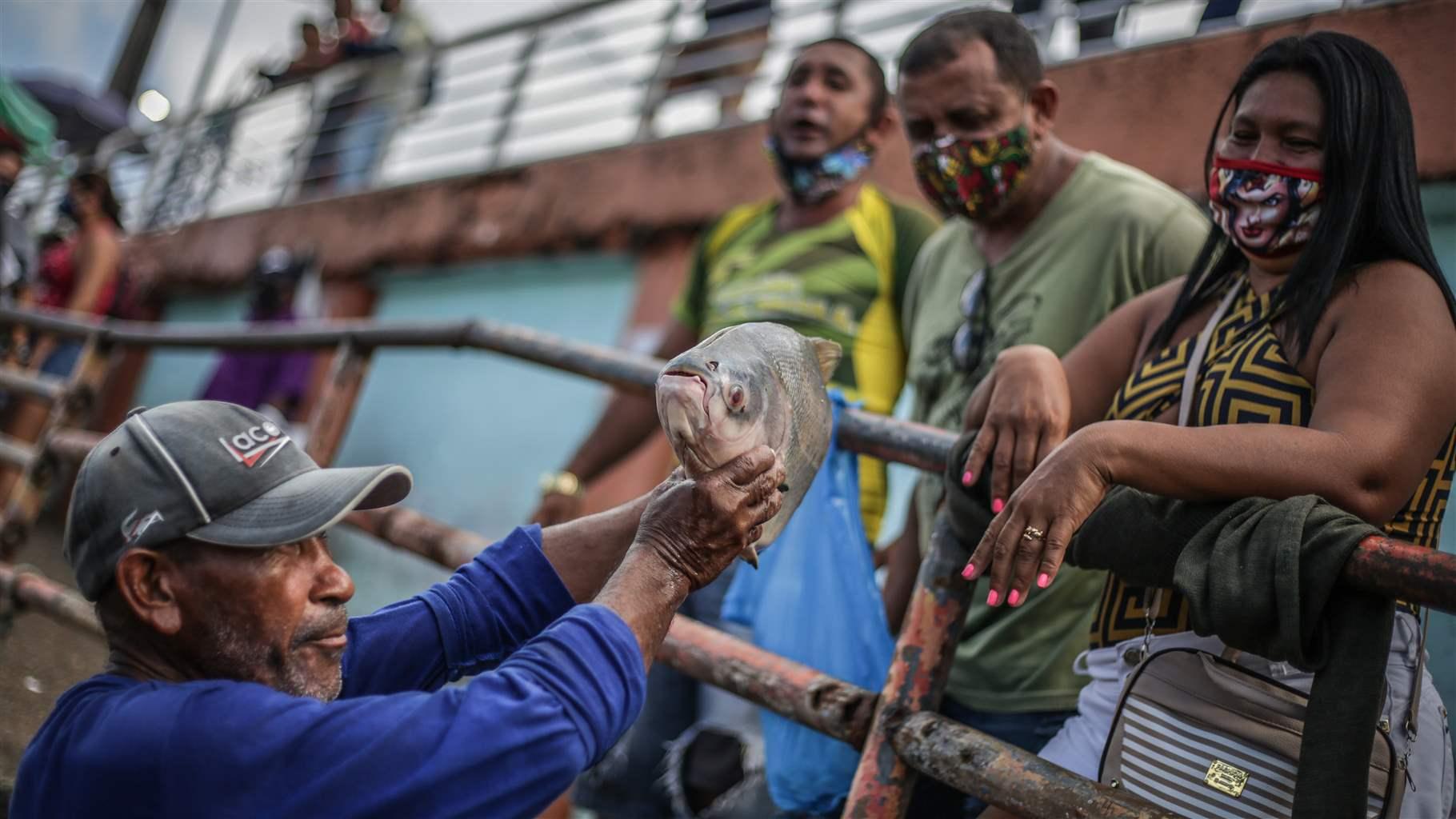Response to COVID-19 Reinforces Lessons for the Fight Against Illegal Fishing
Increased cooperation, collective accountability demonstrate a pathway to change

A year ago, we observed the second annual United Nations-declared International Day for the Fight Against Illegal, Unreported, and Unregulated (IUU) Fishing with a look at successes and with a cautious optimism that the global community was headed in the right direction. While the work to end IUU fishing under United Nations Sustainable Development Goal 14 continues, progress has been made: an ever-growing list of countries have committed to end this practice.
This year, however, the unprecedented challenges with COVID-19 have demonstrated the need to adapt, build resilient systems, and, above all, cooperate internationally. There’s a lesson here for the fight against IUU fishing: When there is great need, political will—and, with it, potential change—can build quickly.
COVID-19 has affected fishing practices, with changes in the fishing operations themselves, shifts in market patterns and suspension of certain controls in order to avoid transmission of the coronavirus between valuable workers in the field: fishers, observers and port inspectors, among others. Sharing timely and accurate information about fishing movement and activity between authorities and across geographies enables risk assessment and preparation for appropriate actions as fishing vessels move between countries, regions and ports. Advance notification on a vessel’s voyage allows maritime authorities to carry out risk assessments to allow low-risk vessels entering the country to be cleared to unload catch and to inspect only high-risk vessels, thereby limiting health risks to crew and inspectors. And inter-agency cooperation is critical when those inspections take place, with coordination among fisheries, customs, immigration and health and food safety authorities that provide oversight of health and safety conditions for crew members, in order to ensure that conditions on board are sanitary and safe; that product reaching the market meets food safety standards; and that it is legally and sustainably caught.
The Pew Charitable Trusts has often discussed the challenges presented by the need to share proprietary, or what some might say is private, data about fishing activity. Now, in the context of a pandemic, with the benefits to all outweighing the individual risks, more people have been willing to share important data because science needs this information to battle the virus. From South Korea to England, individuals are sharing private location data with appropriate authorities, with a clear understanding of how that information would be used.
As we look towards the future, fishers and flag States should choose to do the same. This would not only help combat IUU fishing by showing authorities where to direct resources at sea, or support inspections, but also show that it is possible to balance profit and privacy with transparency and cooperation.
If governments can agree to continue in this spirit of cooperation long after the pandemic ends, illegal fishing may one day become a thing of the past. The shifts in the marketplace, use of technology and better communication between authorities, vessels and governments could have a profound impact on the future of fisheries. On this important IUU day, we must remember that illegal fishing is a problem created by humans and can be solved through a unified global effort.
Peter Horn is project director and Dawn Borg Costanzi is a senior officer with The Pew Charitable Trusts’ ending illegal fishing project.








